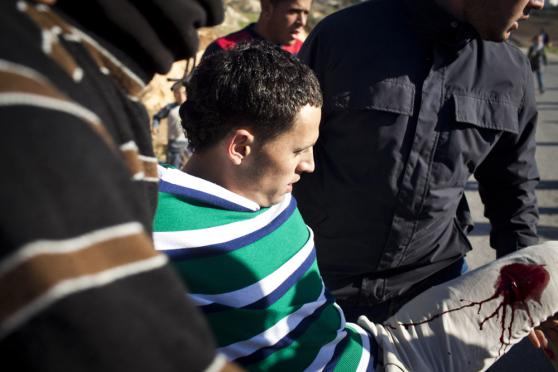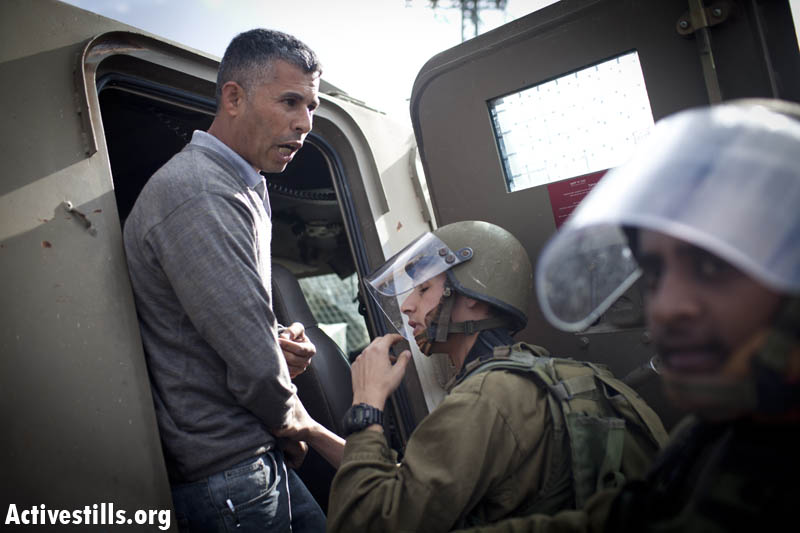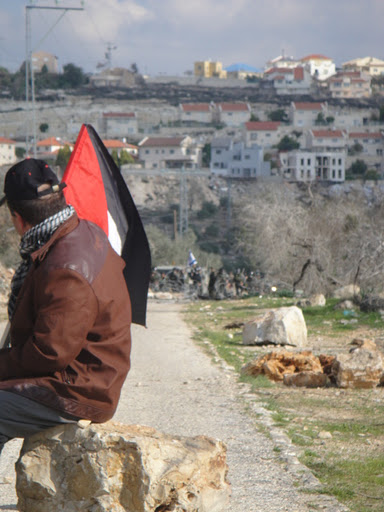Tag: Demonstration
-
Live sniper-fire injures protester in Nabi Saleh
23 December 2011 | Popular Struggle Coordination Committee Two weeks after the killing of Mustafa Tamimi during a demonstration in the village, an Israeli sniper shot a protester with live 0.22″ caliber ammunition, banned for crowd control purposes. Earlier today, an Israeli military sniper opened fire at demonstrators in the village of Nabi Saleh, injuring…
-
2 Palestinians arrested in Nabi Saleh still in jail for resisting occupation
17 December 2011 | Chroniques de Palestine In a blatant demonstration of the discriminatory policies used by the Israeli authorities when it comes to deal with protesters; out of the 21 persons who were arrested during the demonstration in Nabi Saleh on 16.12.2011, all the Israeli and internationals were released while two Palestinians are still…
-
In Photos: Settlement too close for comfort
by Amal 16 December 2011 | International Solidarity Movement, West Bank Kufr Qaddoum’s resistance is only getting stronger and is showing no signs of slowing down. The resilience of the Kufr Qaddoum residents is remarkable. Every week the Israeli Occupation Forces have increased their aggressive attacks, and yet the people still join together every Friday…



